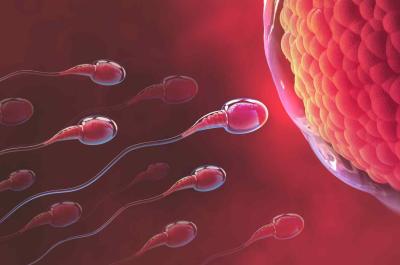
It can be uncomfortable to talk about vaginal dryness, but it’s a condition that many women struggle with. Vaginal dryness can cause an itchy, uncomfortable feeling, and also make sex painful. Read on to learn all about what exactly vaginal dryness is, what causes it, and how you may alleviate the discomfort.
In this article
- What natural lubrication is normal?
- What is vaginal dryness?
- What causes vaginal dryness?
- What are the symptoms of vaginal dryness?
- Vaginal dryness and sex
- Vaginal dryness during pregnancy and after giving birth
- Menopause related vaginal dryness
- Treatment and remedies for vaginal dryness
- When to go to the doctor?
- FAQs about vaginal dryness
- The bottom line
What natural lubrication is normal?
A healthy, normal vagina is slightly moist, with a thin layer of cervical mucus coating the vaginal walls, which is produced by glands around the cervix (the neck of the womb). This cervical mucus changes over the course of your menstrual cycle so you will be wetter and the vaginal mucus more watery and like ‘egg white’ when you are at your most fertile, and dryer at other times of your cycle.
The hormone estrogen stimulates these glands to secrete cervical mucus, and also causes changes to the lining of the vagina to be thicker and more elastic. Changes to quantity, color and consistency of your cervical mucus will depend on where you are in your menstrual cycle.
The amount of cervical mucus a healthy woman secretes can vary from day to day, depending on where she is in her cycle. For example, you may notice more cervical mucus around ovulation as the cervix increases fluid production to help sperm reach and fertilize an egg and also acts as a natural form of lubrication. Want to learn more about changes in cervical mucus?
What is vaginal dryness?
If you notice that you’re not producing much cervical mucus, that you feel dry and itchy in or around the vagina, that the dry vaginal skin is uncomfortable or even painful, or if you experience discomfort during sex, it’s possible you might have vaginal dryness.
Keep in mind, vaginal dryness is quite a common problem that many women experience at some point in their lives. This article will take you through its causes and ways you may alleviate the discomfort. If you experience pain or have any concerning symptoms, see your doctor for advice.
What causes vaginal dryness?
You can get vaginal dryness at any age and for various reasons. One of the most common causes is a change in hormone levels. Hormonal changes can happen if:
- you are approaching menopause
- you are breastfeeding
- you are taking contraceptive pills
- you are taking antidepressants
- you’ve had a hysterectomy (your womb removed)
- you are having certain cancer treatments, like chemotherapy.
There are also non-hormone related causes for vaginal dryness, such as if:
- you are not aroused during sex
- you use perfumed soaps or washes, or douches in and around the vagina
- you have a condition like diabetes or Sjögren’s syndrome (a condition that affects the production of bodily fluids)
- you are taking medicines such as antihistamines.
What are the symptoms of vaginal dryness?
You might have vaginal dryness if you notice any of these symptoms:
- you feel sore, dry, or itchy in or around your vagina
- you feel pain or discomfort during sex
- you find you’re peeing more than normal
- you get recurring urinary tract infections (UTIs).
If you notice any symptoms of vaginal dryness, make sure you see your doctor to rule out any health issues causing it.
Vaginal dryness and sex
Vaginal dryness can make sex uncomfortable. Sex may be painful and you may bleed afterwards as friction from intercourse can damage the tissue in the vagina or cervix. If you notice any bleeding or pain see your doctor.
If you are suffering from vaginal dryness you may feel less like having sex.
Help alleviate the discomfort during sex by:
- using a water-based lubricant before sex (you can use this in and around your vagina or on your partner’s penis)
- adding more foreplay before sex, to help you feel more aroused
- only use creams or lotions intended for your vagina, like vaginal moisturizers
- do not use perfumed soaps.
Also, if you are trying to conceive (TTC), then you’ll want to have sex more frequently around your fertile window to maximize your chances of getting pregnant. Use a fertility-friendly lubricant if you are TTC.
Vaginal dryness during pregnancy and after giving birth
It’s quite normal for childbirth to cause vaginal dryness. Estrogen levels decrease after you give birth, which can result in dryness; and for moms who breastfeed their baby, estrogen levels can dip even lower, further increasing any vaginal dryness.
The good news is, once you stop breastfeeding and when your periods return, your estrogen levels will return to normal and the dryness should go away by itself.
If you start having sex again and the dryness is causing discomfort, a lubricant—go for a water-based or silicone one if you are using condoms—may help ease any pain. It might also help to talk to your partner about any issues or problems in your sex life.
If the dryness persists even after your periods have returned, if you experience pain or if you find vaginal dryness difficult to live with, talk to your doctor.
Menopause related vaginal dryness
During perimenopause and after a woman has gone through menopause, the ovaries produce less estrogen. This not only causes a thinning of the tissues around the vagina and vulva, but also a reduction in the number of glands at the cervix that produce mucus. The vagina can become less elastic and drier.
When these changes occur varies between women. Some may start to experience these changes in the perimenopause, whereas others may only notice these changes years after menopause.
The vaginal dryness associated with menopause can be treated with vaginal moisturizers, lubricants, estrogen creams or hormone replacement therapy (HRT). Talk to your doctor to find out what your best options are.
Treatment and remedies for vaginal dryness
When it comes to ways to alleviate vaginal dryness, it mostly depends on why you have it in the first place—do you have it after childbirth or menopause, or is it because of a health condition? If you’re not sure of the cause and are concerned you should ask your doctor.
If you have no medical condition that could cause vaginal dryness, these are a few general dos and don’ts that can help with any discomfort that accompanies vaginal dryness, no matter the cause:
| Dos | Don’ts |
|
|
Types of lubricants and how they can help
You may have noticed that lubrication products have been mentioned as a form of dealing with vaginal dryness, but what are they exactly?
Lubricants can help reduce the friction experienced during sex when you have vaginal dryness. There are different types of vaginal lubricants available:
- Water-based lubricants. This is a common type of lubricant and can come in glycerine or glycerine-free (the latter are advertized as less likely to cause irritation) versions. Water-based lubricants are a good option if you’re using a condom.
- Silicone-based lubricants. These lubricants are generally considered long lasting and are also condom safe. Silicone-based lubricants are also hypoallergenic.
- Oil-based lubricants. These are usually less expensive. The CDC recommends against using oil-based lubricants as they are incompatible with condoms, and also recommends against using synthetic oil-based lubes like petroleum jelly as they can irritate the vagina.
- Natural lubricants. These are made from organic, natural botanicals and are often vegan and sustainable. They are free from parabens, and their ingredients are usually safe for your vagina. However, they have a short shelf life and can cost more.
- Sperm-friendly lubricants. If you’re looking to get pregnant, find a lubricant that’s sperm friendly. Certain ingredients in lubricants, like glycerine, may affect sperm motility —which is how well the sperm can move—and function so you want to go for a sperm-friendly lubricant that’s made without any of these ingredients. You can find these on the market listed as being sperm-friendly.
When to go to the doctor?
Consider seeing your doctor if:
- vaginal dryness is affecting your daily life
- you’ve had vaginal dryness for a few weeks, and the things you can try yourself (like using lubrication) are not working
- you experience pain or unusual discomfort
- you notice any unusual discharge or bleeding from the vagina
- you have bleeding after sex or between your periods
- you think that vaginal dryness is due to hormonal changes (for example, you are menopausal)
- you feel concerned by any health reason
FAQs about vaginal dryness
What does vaginal dryness feel like?
You may feel sore, dry or itchy around your vagina, and may feel pain and discomfort during sex.
What helps vaginal dryness?
Lubrication before sex and vaginal moisturisers can help if you suffer from vaginal dryness. Consult your doctor in case you feel any abnormal discomfort, have a concern or experience pain.
Can you be dry in early pregnancy?
Pregnancy can affect your hormones, which in turn can affect how moist or dry your vagina is. In pregnancy, there is a decrease in the hormone called estrogen, which may cause vaginal dryness. Also, your libido may change during pregnancy, which can affect vaginal lubrication.
Does menopause dryness go away?
Dryness due to menopause won’t go away by itself, and without treatment could get worse. If you’re menopausal talk to your doctor about your options, especially if your vagina is itchy or dry all the time.
The bottom line
The symptoms of vaginal dryness can be uncomfortable to live with, but fortunately there are many options out there to help alleviate the discomfort. If you are concerned about it or are going through menopause, it’s worth talking to your doctor to see which treatments, like hormonal treatments, could be right for you.




